- Details
- Category: Senator Lakesia Collins News
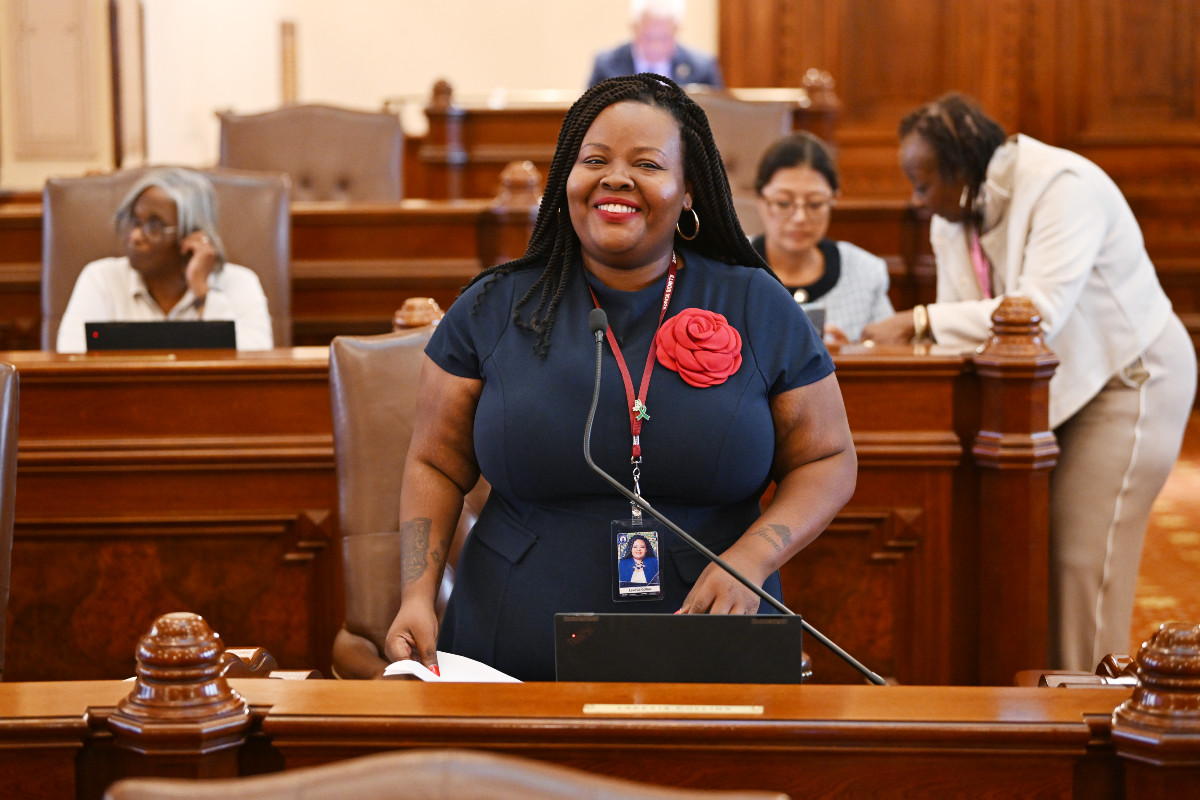
SPRINGFIELD — State Senator Lakesia Collins spearheaded a property tax relief package that was signed into law Friday, increasing property tax exemption thresholds for senior citizens in Illinois.
“Seniors have a lot on their plate to deal with from health care to home care, and property taxes should not be on that list,” said Collins (D-Chicago). “Expanding the number of seniors who qualify for relief ensures seniors in our neighborhoods can stay in our neighborhoods.”
The new law, Senate Bill 642, will deliver critical updates to help seniors on fixed incomes and help families facing economic challenges manage rising property tax costs. Under the measure, the maximum income limit for the Low-Income Senior Citizens Assessment Freeze Homestead Exemption will increase substantially over the next several years, beginning at $75,000 for taxable year 2026, increasing to $77,000 for taxable year 2027 and settling at $79,000 for taxable year 2028 and beyond.
Read more: Collins law expands property tax relief for seniors
- Details
- Category: Senator Linda Holmes News
 AURORA – Senator Linda Holmes joined a ceremony on November 21 at the future site of the new Learning Commons facility on the Aurora University campus. She joined Aurora University President Susana Rivera-Mills and other officials to sign their names on a beam that will be part of the structure as it is built.
AURORA – Senator Linda Holmes joined a ceremony on November 21 at the future site of the new Learning Commons facility on the Aurora University campus. She joined Aurora University President Susana Rivera-Mills and other officials to sign their names on a beam that will be part of the structure as it is built.
“The new building will be a central hub of academic life on campus, bringing together the resources students use most to a single convenient, welcoming space,” said Holmes, D-Aurora. “This environmentally friendly project will create a high-tech hub on campus that will increase opportunities for students to gather, strengthen their skills and build relationships within their community.”
Holmes obtained $750,000 in capital funding for the project in the state’s fiscal year 2025 budget, and the Learning Commons will transform the way Aurora University students learn, collaborate and connect. Holmes said the facility is expected to open in fall 2026, and it has created 50,000-man hours of union construction work.
Read more: Senator Holmes celebrates construction kickoff for new Aurora University Learning Commons
- Details
- Category: Member News
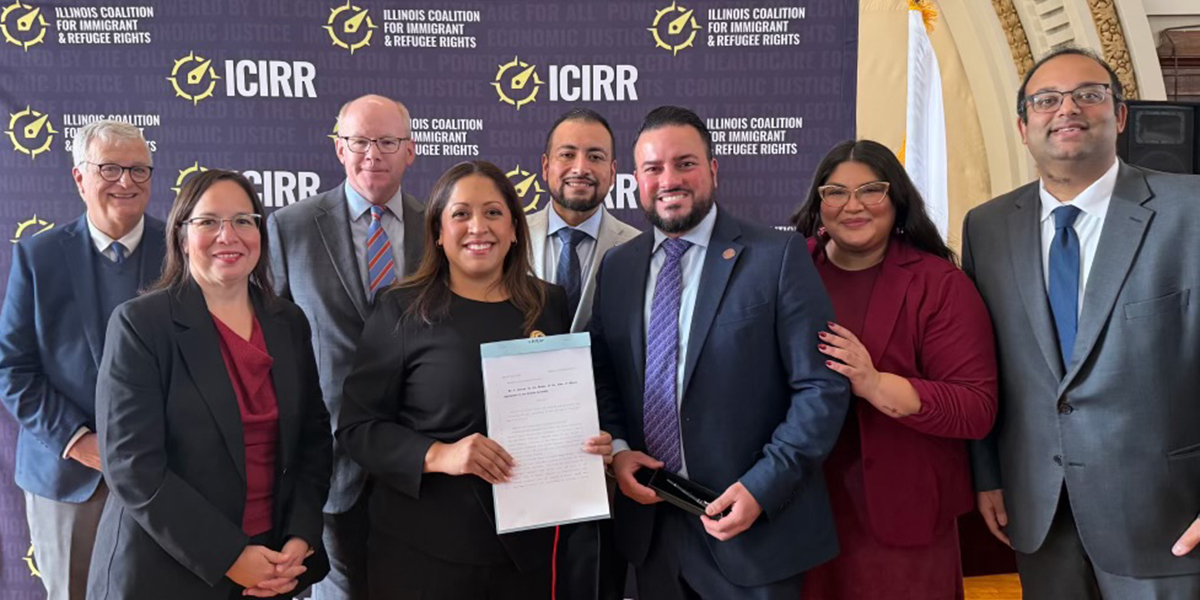 CHICAGO – Members of the Illinois Senate Democratic Caucus championed a new law aimed at safeguarding residents' constitutional rights and maintaining access to essential public services during increased federal immigration enforcement activity in Chicago and throughout the state.
CHICAGO – Members of the Illinois Senate Democratic Caucus championed a new law aimed at safeguarding residents' constitutional rights and maintaining access to essential public services during increased federal immigration enforcement activity in Chicago and throughout the state.
The law responds to reports of intensive federal immigration operations in Chicago and other Illinois communities that have sparked concerns about potential constitutional violations and reduced access to critical services.
“There is no badge, no title, no mask that puts anyone above the Constitution. This law sends the message that if you abuse your authority, there are consequences,” said Senate President Don Harmon (D-Oak Park). “Our rights follow us into the courthouse, onto campus, at the hospital and when taking our kids to daycare. No one gets to take them away. We are providing the victims of this chaotic federal assault a clear, legal path to go after their abusers and hold them accountable.”
Read more: Senate Democrats lead landmark legislation to enhance civil rights amid ICE activities
- Details
- Category: Majority Report
Koehler's new law puts vaccine guidance at the forefront
SPRINGFIELD — State Senator Dave Koehler’s House Bill 767, legislation designed to put clear, expert vaccine guidance at the center of Illinois’ public health response, has become law.
“Families deserve clear, evidence-based guidance when making health decisions for their children,” said Koehler (D-Peoria). “This law requires expert input to drive our immunization policies, makes those recommendations public and adds practical protections so pharmacies can continue serving their communities safely and effectively.”
Johnson champions legislation to strengthen safety and privacy protections for public officials
SPRINGFIELD — To better protect the safety and privacy of public officials and their families, Senator Adriane Johnson championed legislation to remove personal information from the public domain and prevent online targeting.
“Public service should never come with threats to personal safety,” said Johnson (D-Buffalo Grove). “We’ve seen far too many examples of harassment and intimidation directed at officials for simply doing their jobs. This measure provides common-sense protections that keep our public servants and their families safe, without compromising government transparency.”
Peters' measure to raise juvenile detention age, focus on rehabilitation
SPRINGFIELD — An initiative from State Senator Robert Peters aims to raise the minimum age at which minors can be detained and limit the use of detention in certain situations where the minor is not charged with a violent crime, making it clear the state is moving away from harsh detention practices and prioritizing rehabilitation.
“Our juvenile justice system should focus on rehabilitation over punishment,” said Peters (D-Chicago). “By raising the age at which a minor can be detained and emphasizing alternative methods, we’re giving young people a fair chance at reformation without subjecting them to the damaging effects of detention at an early age.”
Strengthening free press protections
From newsroom intimidation to national security transparency, State Senator Steve Stadelman shares candid insights on the real-world pressure journalists face — and how Illinois’ new protections aim to defend the public’s right to know.

In case you missed it
MEMBERS IN THE NEWS
Senator Laura Fine, Evanston: New Illinois law supports nursing mothers, begins in 2026 | Yahoo
Senator Linda Holmes, Aurora: Statewide Paint Recycling Program Debuts in Illinois | PR Newswire
Senator Elgie R. Sims, Jr., Chicago: Clean Slate Act: Bill automatically sealing nonviolent felony records awaits Pritzker's signature | WAND
Copyright 2025 - Illinois Senate Democratic Caucus - All Rights Reserved
- Details
- Category: Senator Dave Koehler News
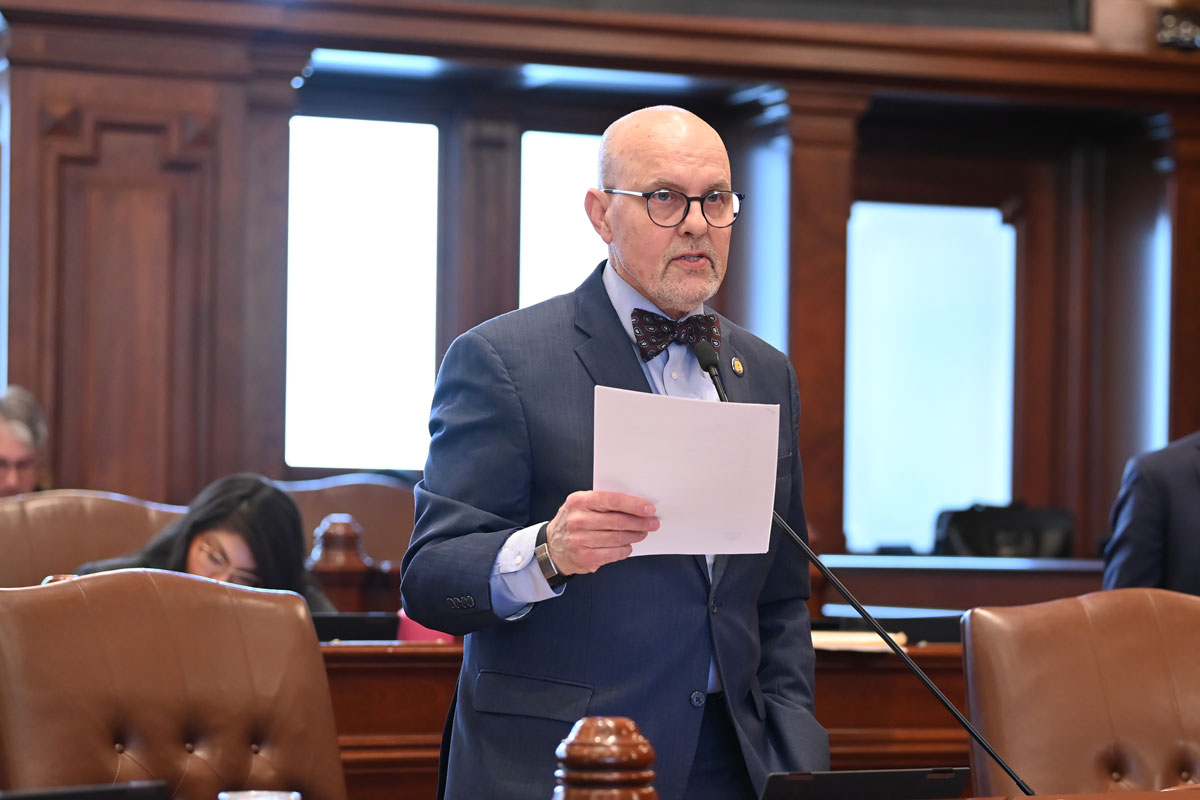 SPRINGFIELD – State Senator Dave Koehler’s House Bill 767, legislation designed to put clear, expert vaccine guidance at the center of Illinois’ public health response, has become law.
SPRINGFIELD – State Senator Dave Koehler’s House Bill 767, legislation designed to put clear, expert vaccine guidance at the center of Illinois’ public health response, has become law.
“Families deserve clear, evidence-based guidance when making health decisions for their children,” said Koehler (D-Peoria). “This law requires expert input to drive our immunization policies, makes those recommendations public and adds practical protections so pharmacies can continue serving their communities safely and effectively.”
The new law comes at a time when the federal administration has gone dark on vaccine transparency. The goal is to shine a spotlight on this issue so Illinois continues to follow the science, no matter what happens at the federal level.
Read more: Koehler's new law puts vaccine guidance at the forefront
- Details
- Category: Majority Report
Happy Thanksgiving!
With much to be grateful for this year, it was important for us to reach out and wish you a very safe and happy Thanksgiving.
This day reminds us all to acknowledge the blessings of the past year and to give thanks to the people who have helped us through tough times.
We hope your home is filled with love and warmth, and that you are able to feel a sense of togetherness.
To hear a special Thanksgiving message from Senate President Don Harmon, click here. Happy Thanksgiving!

Shop small this holiday season!
As we head into the heart of the holiday season, we want to share a friendly reminder that Small Business Saturday is coming up on Nov. 29. This nationwide celebration encourages all of us to support the local shops, restaurants and family-owned establishments that make our community unique.
Whether you’re picking out gifts, grabbing a meal or simply exploring your neighborhood, choosing to spend locally has a real impact. Even if you’re watching your budget this year, there are still meaningful ways to lift up small businesses, such as leaving a kind review, recommending them to a friend, or showing your support by engaging with them on social media.
Every bit helps. Let’s come together to uplift the small businesses that keep our community vibrant, connected and thriving. Remember to shop small this holiday season!
Copyright 2025 - Illinois Senate Democratic Caucus - All Rights Reserved
- Details
- Category: Majority Report
Illinois Senate Democrats celebrate the opening of IATSE Local 2's new training center
CHICAGO — Members of the Illinois Senate Democratic Caucus applauded the opening of a new training center for the International Alliance of Theatrical Stage Employees Local 2 Stagehands, thanks to a $5 million grant they backed.
“Our entertainment workforce displays great creativity and passion for their craft,” said State Senator Cristina Castro (D-Elgin). “Supporting their efforts to develop and train workers in this arena will bring greater opportunities for more pillars of the filmmaking community to call Illinois their home.”
Ellman commemorates opening of new Philip J. Rock Center and School facility for deaf-blind students
GLEN ELLYN — State Senator Laura Ellman joined local, state and community leaders to celebrate the grand opening of the new Philip J. Rock Center and School, the nation’s only publicly-funded residential school dedicated to serving students who are deaf-blind.
“As the only publicly-funded residential school in the country for students who are deaf-blind, the Philip J. Rock Center and School has helped students discover their strength and independence for generations,” said Ellman (D–Naperville). “I’m thrilled that Illinois is supporting this incredible place, ensuring its impact reaches even more families across our community.”
Belt celebrates groundbreaking on new grocery store in Venice
VENICE — State Senator Christopher Belt joined leaders from across the Metro East region to break ground on a new grocery store in Venice as part of the Illinois Grocery Initiative — marking an important milestone in expanding access to fresh, affordable food for local residents. The groundbreaking represents a critical joint effort to revitalize the city, which was made possible through a $2.4 million state grant and private funding.
“We have had some great days here in Venice, first for our bill signing, then to award this grant, and now we are here to put a shovel in the ground,” said Belt (D-Swansea). “I don’t have a crystal ball, but I think we’ll be here again when the grocery store is completed to celebrate what we have accomplished.”
Impacts of federal budget decision on education in Illinois
From reducing access to health care and meals for public school students, to slashing options for student loan repayments, the federal administration’s budget makes devastating cuts across education – from preschool to college.
State Senator Meg Loughran Cappel, a former teacher, joins the Sound of the State to discuss the impact HR1 has on our students.

In case you missed it
MEMBERS IN THE NEWS
Senator Omar Aquino, Chicago: Bill creating safety zones, allowing immigrant families to file civil lawsuits against ICE heads to Pritzker's desk | WAND
Senator Don Harmon, Oak Park: Illinois lawmakers pass behavioral healthcare parity law, send plan to Pritzker's desk | WAND
Senator Mike Simmons, Chicago: Illinois Senate passes bill banning rent junk fees, House ends session without voting on plan | WAND
Copyright 2025 - Illinois Senate Democratic Caucus - All Rights Reserved
- Details
- Category: Member News
 CHICAGO – Members of the Illinois Senate Democratic Caucus applauded the opening of a new training center for the International Alliance of Theatrical Stage Employees Local 2 Stagehands, thanks to a $5 million grant they backed.
CHICAGO – Members of the Illinois Senate Democratic Caucus applauded the opening of a new training center for the International Alliance of Theatrical Stage Employees Local 2 Stagehands, thanks to a $5 million grant they backed.
“If you’ve been to a great show or concert — or seen Chicago looking magnificent on the screen — it was made great in large part because of the work of IATSE Local 2,” said Senate President Don Harmon (D-Oak Park). “This facility ensures they’ll continue leading the way in skill, safety and innovation, preparing the next generation of professionals for the high-tech, high-skill jobs that quite literally keep the show going.”
The new training center comes after members of the Illinois Senate Democratic Caucus brought forth SB 1911 to strengthen the film and TV community by expanding the Illinois Film Production Tax Credit. The expansion will support good-paying jobs throughout the state with numerous enhancements, including an increased tax credit for local labor and Illinois vendors, incentives to relocate TV series to Illinois, regional production bonuses and more.
Read more: Illinois Senate Democrats celebrate the opening of IATSE Local 2’s new training center
More Articles …
- The Majority Report 11/10/25 - Protecting vulnerable communities
- Belt celebrates groundbreaking on new grocery store in Venice
- Ellman commemorates opening of new Philip J. Rock Center and School facility for deaf-blind students
- The Majority Report 11/03/25 - Passing landmark legislation to enhance civil rights, statewide public transit and more
Page 10 of 769

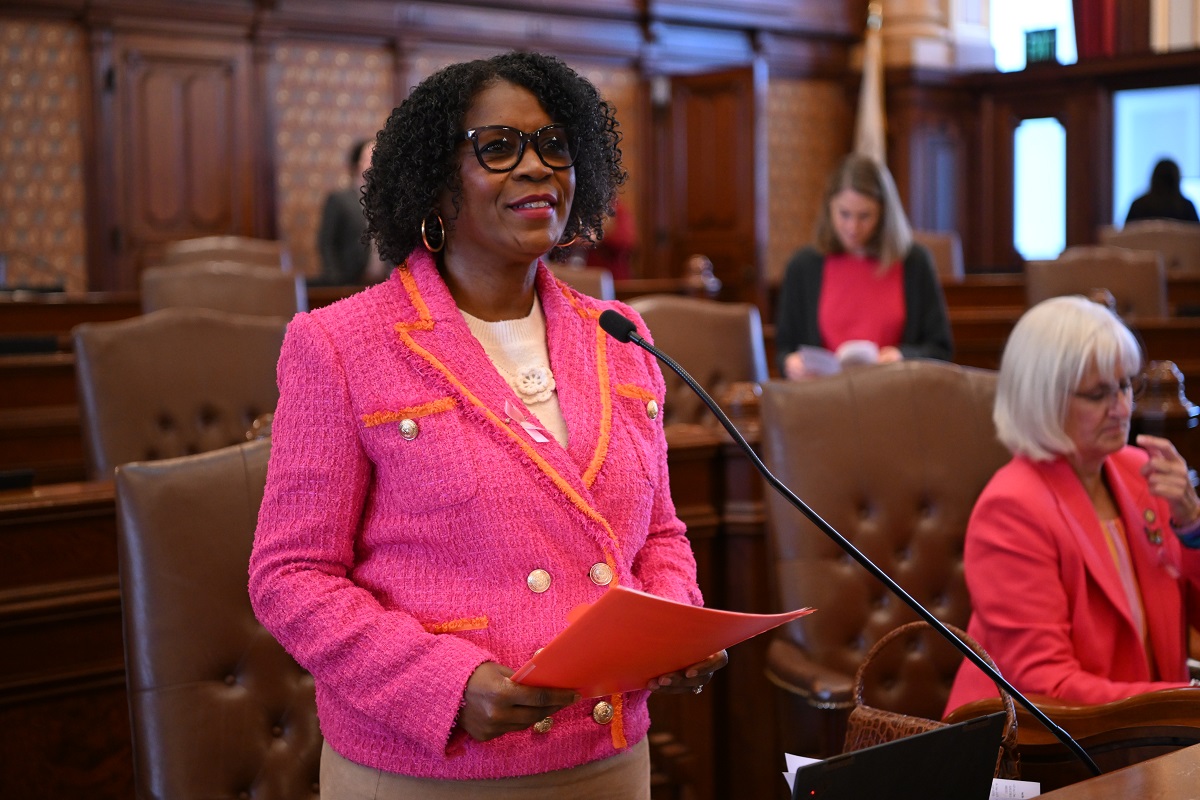
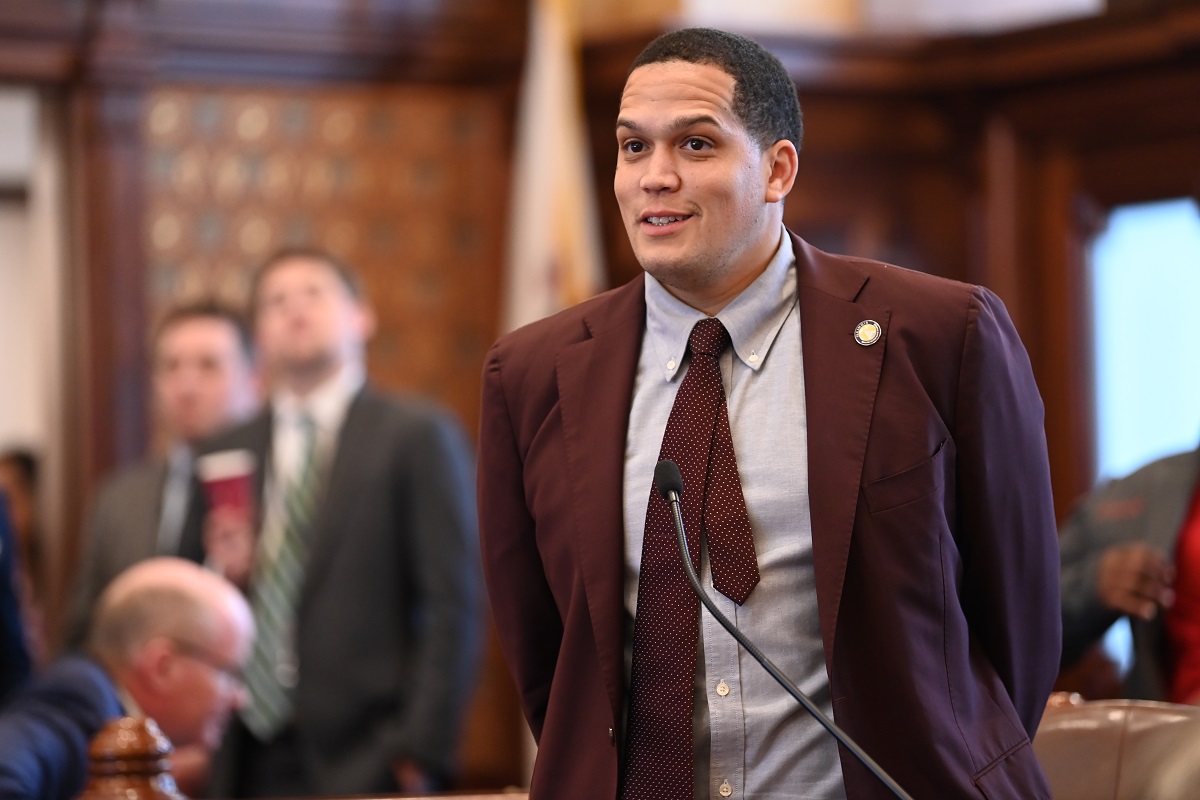

















 © 2026 Illinois Senate Democratic Caucus
© 2026 Illinois Senate Democratic Caucus